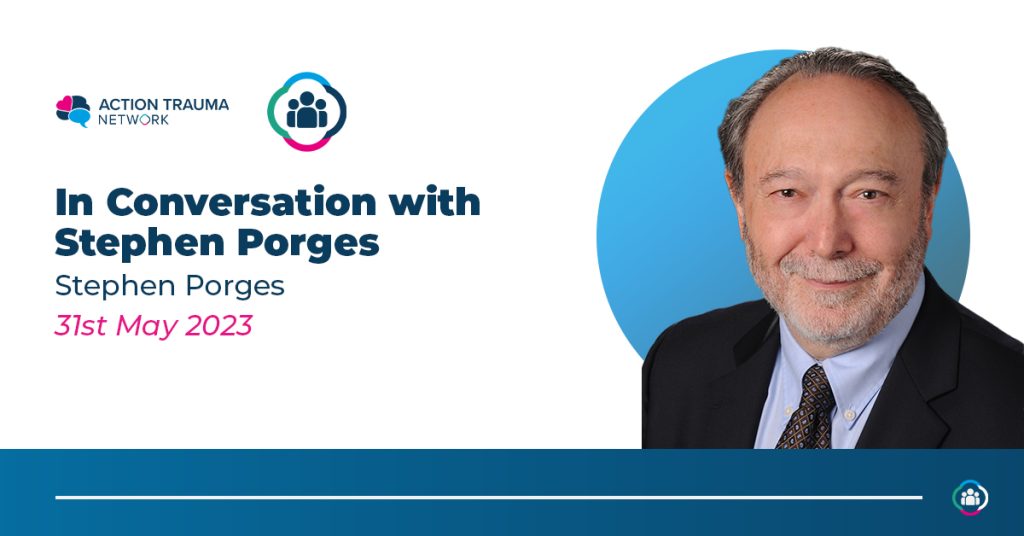In Conversation with Stephen Porges – Polyvagal Theory

We were delighted to welcome the Action Trauma Network Ambassador, Stephen W. Porges, Ph.D, for this exclusive webinar where we explored the topic of Polyvagal Theory – a theory that links the evolution of the mammalian autonomic nervous system to social behavior and emphasizes the importance of physiological state in the expression of behavioral problems and psychiatric disorders.
The theory is leading to innovative treatments based on insights into the mechanisms mediating symptoms observed in several behavioral, psychiatric, and physical disorders. Trauma Revealed as Mental and Physical Health Vulnerabilities – Insights From the Polyvagal Theory
This was an interactive webinar with Dr Porges, we addressed topics such as chronic pain, polyvagal theory and the role music can have in trauma healing.
POLYVAGAL THEORY
Polyvagal Theory provides an insight to understanding the role of autonomic regulation as an intervening variable, exacerbating or dampening the influence on the impact of mental and physical health. Adversity history may retune autonomic regulation and lower the threshold for threat reactions, resulting in a greater impact on mental health and even a greater potential vulnerability to viruses and illness .
CHRONIC PAIN
Studies show that chronic pain does not always stem from structural or tissue damage, but instead may persist because the nervous system is stuck in psycho-physiological states of survival. But what exactly is chronic pain? How does it develop, and how can we find relief?
MUSIC
The Polyvagal Theory provides a way in to understanding the mechanisms and processes that enable music and music therapy to improve social engagement behaviours and to enhance the regulation of bodily and behavioural state. The theory provides insights that bridge music therapy with the nervous system and health outcomes.





Responses